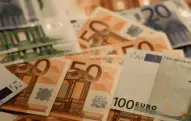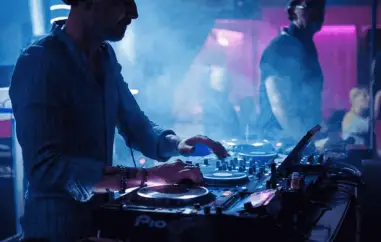Lovell's Lowdown
Sports fans worldwide, not just in Great Britain, should be freely able to revel in Bradley Wiggins' stunning success in the Tour de France. But are we allowed this privilege?
The 32-year-old became the first Briton to win cycling's premier road race. A remarkable feat for Britain and a big boost ahead of the Olympics - with his team-mate Chris Froome supporting him unselfishly all the way as Team Sky sealed a 1-2.
Unfortunately for me there will always be an element of doubt over any success in events such as the Tour de France because of the massive shadow of doping hanging over the race like a menacing black cloud.
Don't get me wrong, I love a good clean fight and apologies to all those honest sportsmen out there doing their best, to which I believe Wiggins belongs. For the love of sport and competition, I simply have to believe this. I must.
It has been heralded as a wonder that "only" two riders failed doping tests during the 2012 Tour. One of them, Frank Schleck of Luxembourg, claims to have been mysteriously ''poisoned''.
In recent years, it's become so bad that German broadcasters (ARD, ZDF) who used to provide saturated coverage won't touch the race with a barge pole. They, like me, are scarred after the numerous doping scandals, rumours, lies, dodgy blood packages and plain bad publicity. Major German sponsor Telekom (famous for their vivid pink kits) made a sharp exit from cycling as it saw the company name dragged through the mud and courtrooms. East German Jan Ullrich was its most famous team member, a Tour winner in 1997, but who this year was handed a 2-year ban for blood doping. Then we consider the likes of Spain's Albert Contador, a multiple tour winner stripped of his most recent title for doping, but claiming to have eaten infected meat.
In fact only two Tour de France winners since 1995 - Carlos Sastre in 2008 and Australian Cadel Evans last year - have not become embroiled in controversies involving performance-enhancing drugs. In 1998 I was transfixed by the super-human achievements in the mountains of Tour winner Marco Pantani. The 'Pirate' later admitted using cocaine throughout his career and died in tragic fashion due to a drug overdose.
An American Anti-Doping Agency has recently given lifetime bans to three of the six men named in the Lance Armstrong doping conspiracy case. The Texan, a 7-time Tour winner, who made a miraculous recovery from cancer, continues to plead his innocence. We would love to believe you, Lance.
My dad used to wax lyrical about Tommy Simpson, the first ever British rider to don the Yellow Jersey. Tommy died 'on the job' during the 1967 Tour, fuelled by a high octane cocktail of alcohol and amphetamines.
This dark doping cloud will also loom large at the forthcoming Olympics. It would be foolish to ignore it. Anyone remember the days of Ben Johnson and Flo-Jo? Or those muscly Eastern Bloc women athletes who looked like......men. I am still scarred. Literally.
In my opinion, where there are gold medals and, more importantly, millions of dollars at stake, there will always be those who seek to gain that extra little advantage over their rivals.
What do you think? How far have we moved on? I look forward to hearing your views.



































